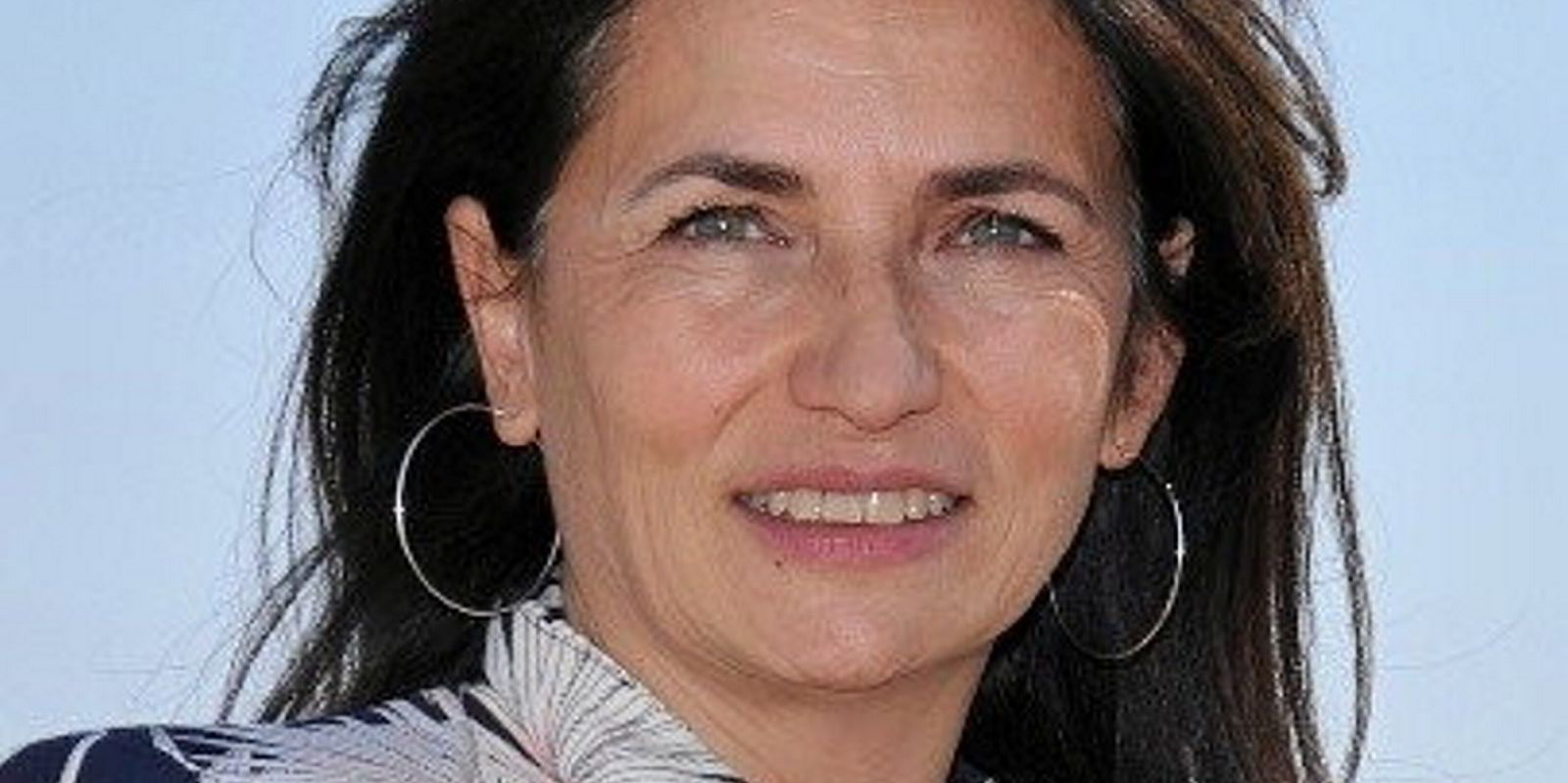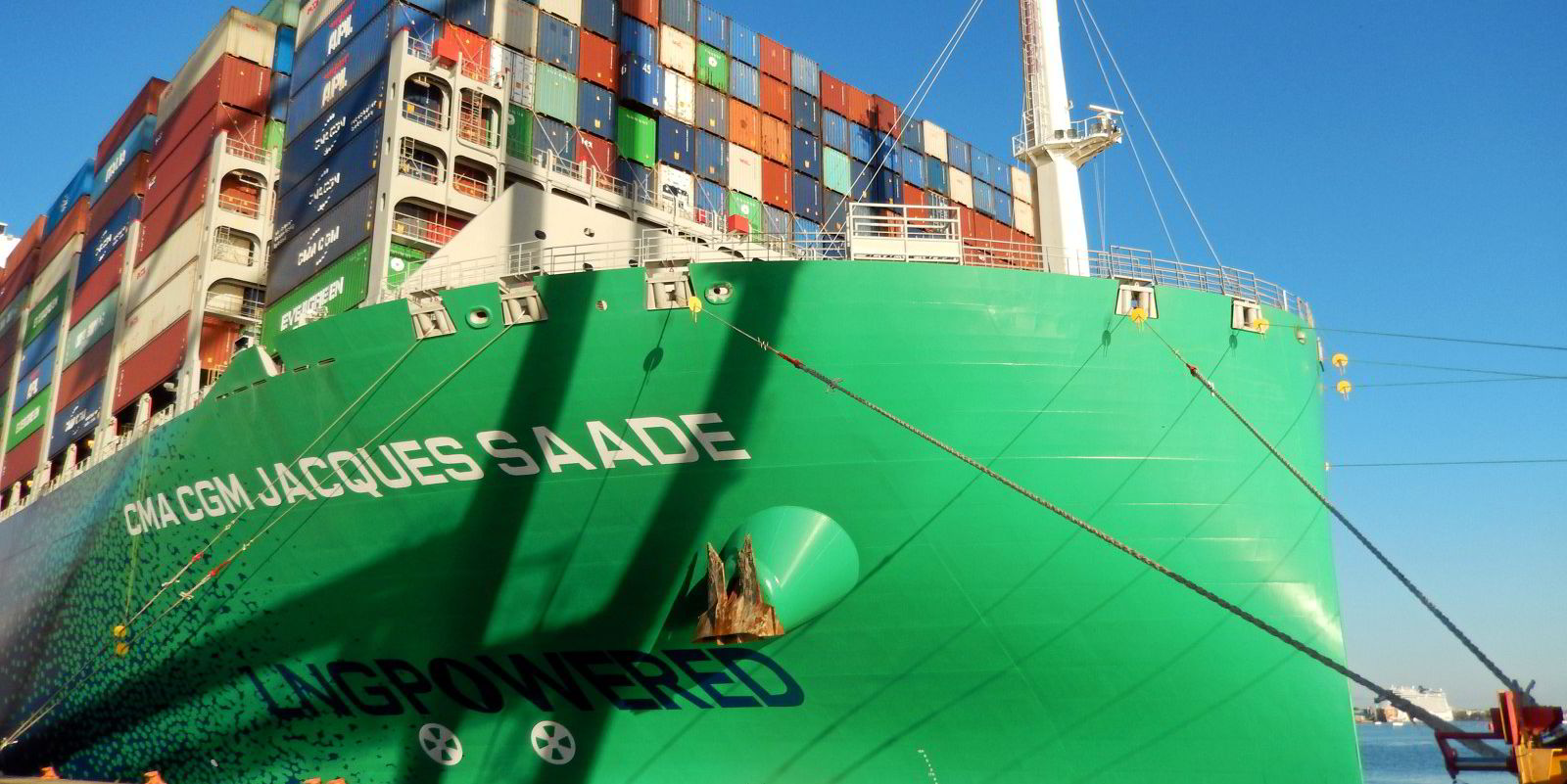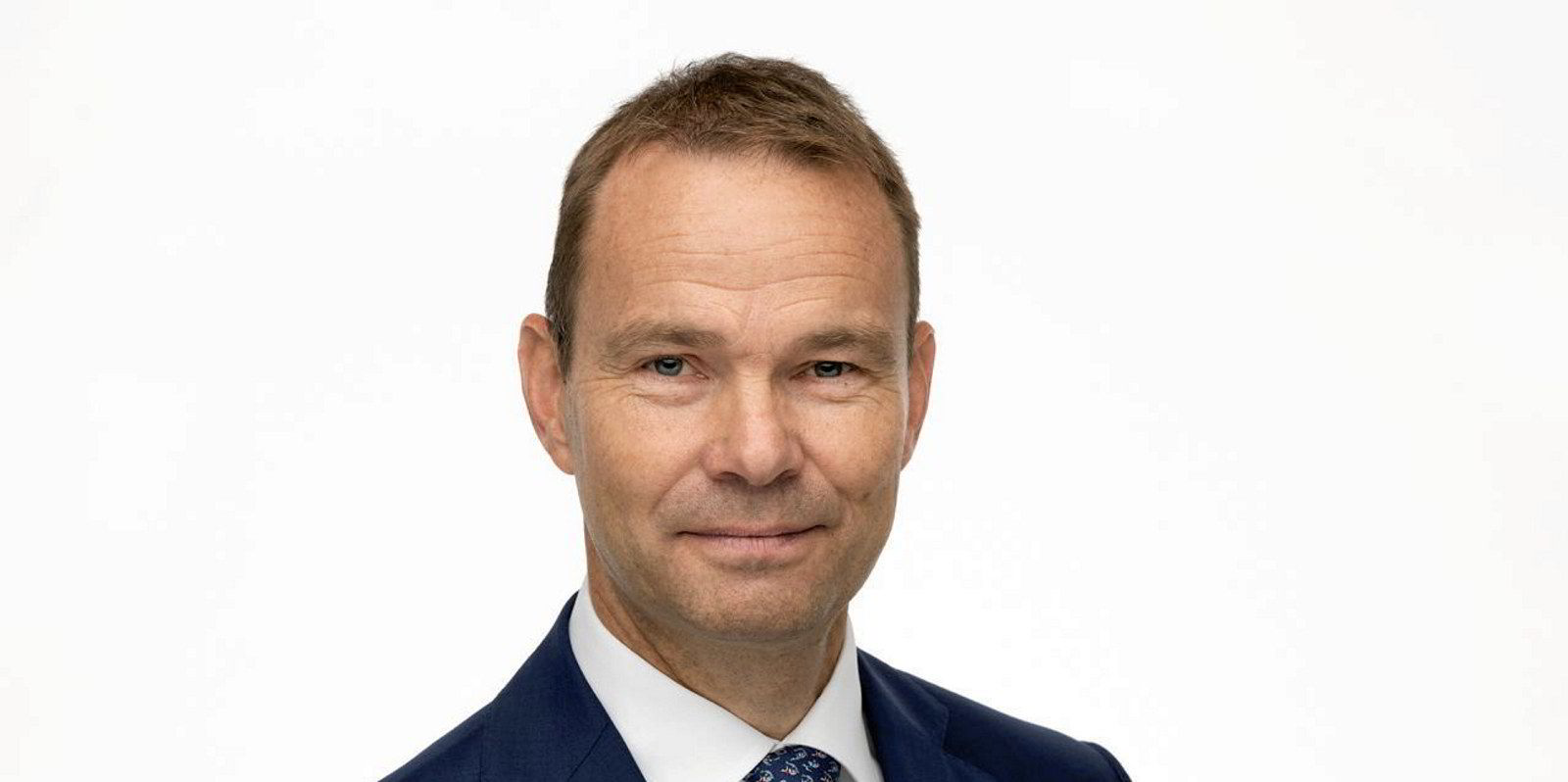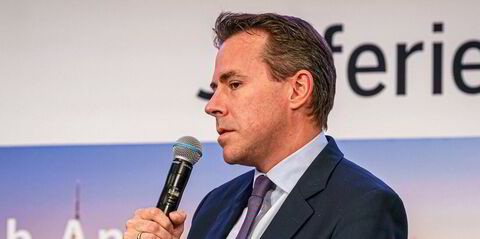The next step toward decarbonisation for LNG-fuelled container ship leader CMA CGM is the development of green methane as a fuel, according to its fleet head.
By the end of the year, the company will operate 24 large LNG-propelled boxships, and by 2025 it will be up to 44 ships, according to Christine Cabau Woehrel, chief executive of CMA Ships and CMA CGM executive vice president in charge of assets.
“This is the first step. It is not the end of the story but the beginning,” she said of the LNG-fuelled vessels in a webinar on the next steps for shipping’s decarbonisation post-COP26, hosted by the International Chamber of Shipping (ICS).
“But it is a beginning that creates a certain path. The next alternative gas we are working on is bio-methane — and also synthetic methane and e-methane. We believe these are the next steps toward net-zero emissions for shipping.”
CMA CGM is developing a joint strategy with fellow French renewable energy company Engie to accelerate the industrial-scale production and distribution of liquefied gases that are not fossil fuels.
“We are trying to support the production of bio-methane in Europe from waste into liquefied bio-methane that we can put in our ships,” Woehrel said.
‘We need to get started somewhere’
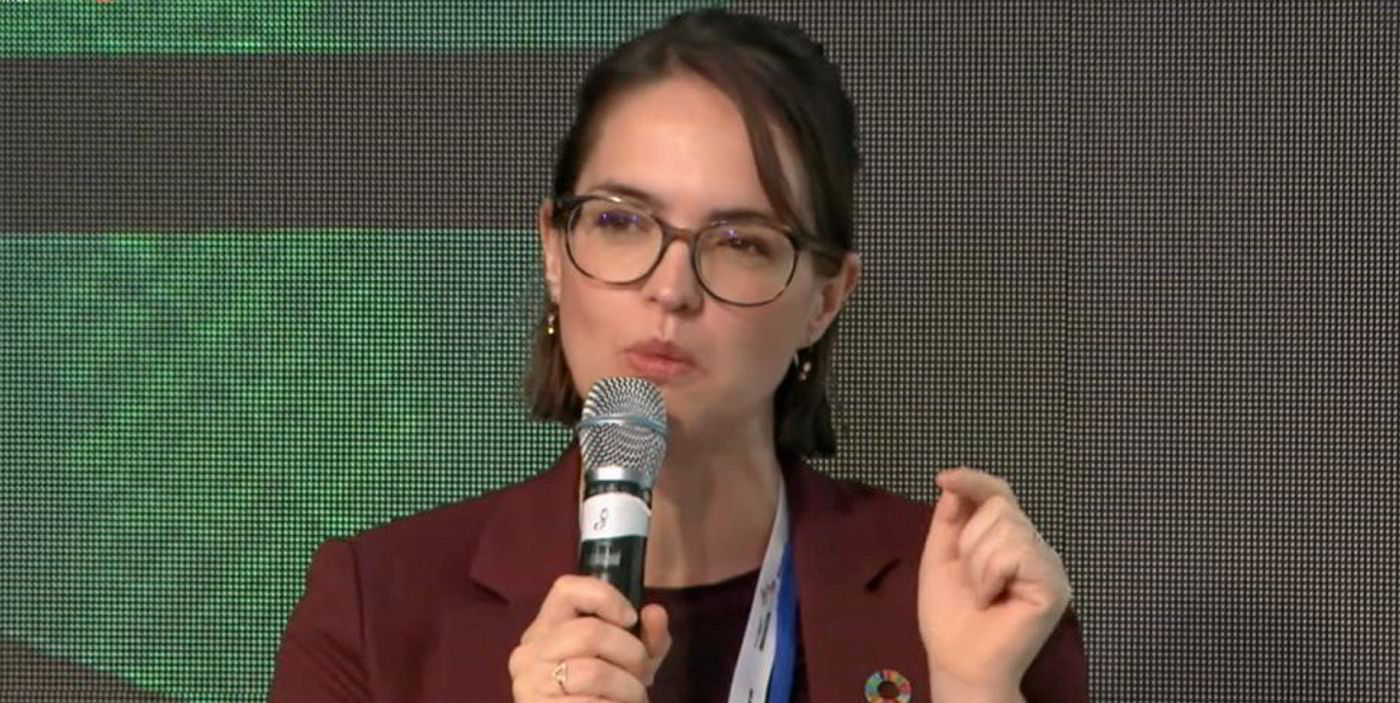
The liner group is discussing how it can be a major market off-taker of synthetic methane that would allow Engie to scale up production, she added, possibly involving investment by CMA CGM.
“We need to get started somewhere,” she said. “We need to learn how to work in ecosystems — the key to this mobilisation will be joining forces with all the stakeholders.”
Nick Brown, chief executive of Lloyd’s Register, believes the next big steps will be the development of the green corridors for shipping envisaged by the Clydebank Declaration announced at COP26 last November.
Large-scale demonstration ships could test new technologies that could be a starting point to ramping up their deployment, and help provide clarity and certainty on the cost of carbon to make fleet investment decisions over the next 10 years, he said.
Rolf Thore Roppestad, chief executive of Norwegian P&I club Gard, reiterated the message that all sectors of the industry have a part to play on the pathway to decarbonising shipping, with the insurer’s role encompassing the safety of the people and assets involved.
Katrin Harvey, chief operating officer of the Ban Ki-moon Centre for Global Citizens, which took part in the ICS conference held in Glasgow alongside the COP26 climate talks, said it is important to take people along on the journey, to allay their fears about change.
Saying it would be best to focus on the sustainable development goals already outlined by the United Nations in the period up to 2030, she said bringing together people and industries “is not just an opportunity to survive but a way to potentially thrive as a global community”.
